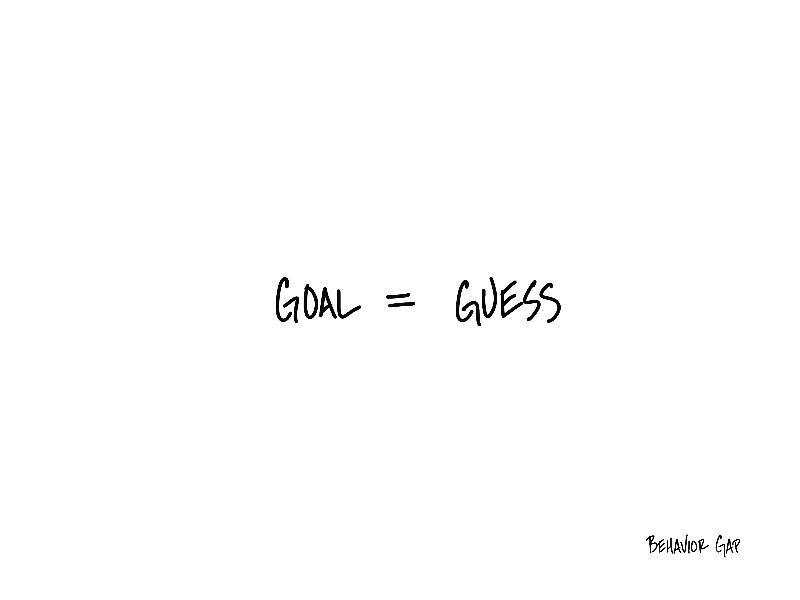
You know what I feel when somebody tells me to list my financial goals?
I feel a weight on my shoulders. Tension in my neck. This emotion bubbling up in me, saying, “I don’t know!”
Guess what: If you feel that way too, you are not alone.
I have asked thousands of people about their financial goals, and almost universally, the question seems to generate emotional dread.
And yet, the research is pretty clear that having goals is helpful.
So how do we deal with this?
I’ve got a couple of ideas I think might help.
1. Goals are guesses. No one knows exactly what they’re going to be doing 17.5 years from now. No sense in laboring over a false sense of precision. Just guess.
2. Goals are flexible. It’s possible to be completely committed to a goal and, at the same time, open to changing it. Remember, it was just a guess.
3. Goals are personal. Your goals are your own. Not your neighbor’s or that person on Instagram. Yours. And since they are yours… you don’t have to worry about them being wrong!
4. Big goals require small steps. Having a big, scary goal gets you out of bed. Repeatedly taking the next smallest step toward that goal keeps you moving.
Keep this in mind. Because I guarantee you will be asked—at some point, by someone—to list your financial goals. And trust me, it will help you tremendously to have an answer (or at least an idea) when that time comes.
-Carl
P.S. As always, if you want to use this sketch, you can buy it here.
. . .